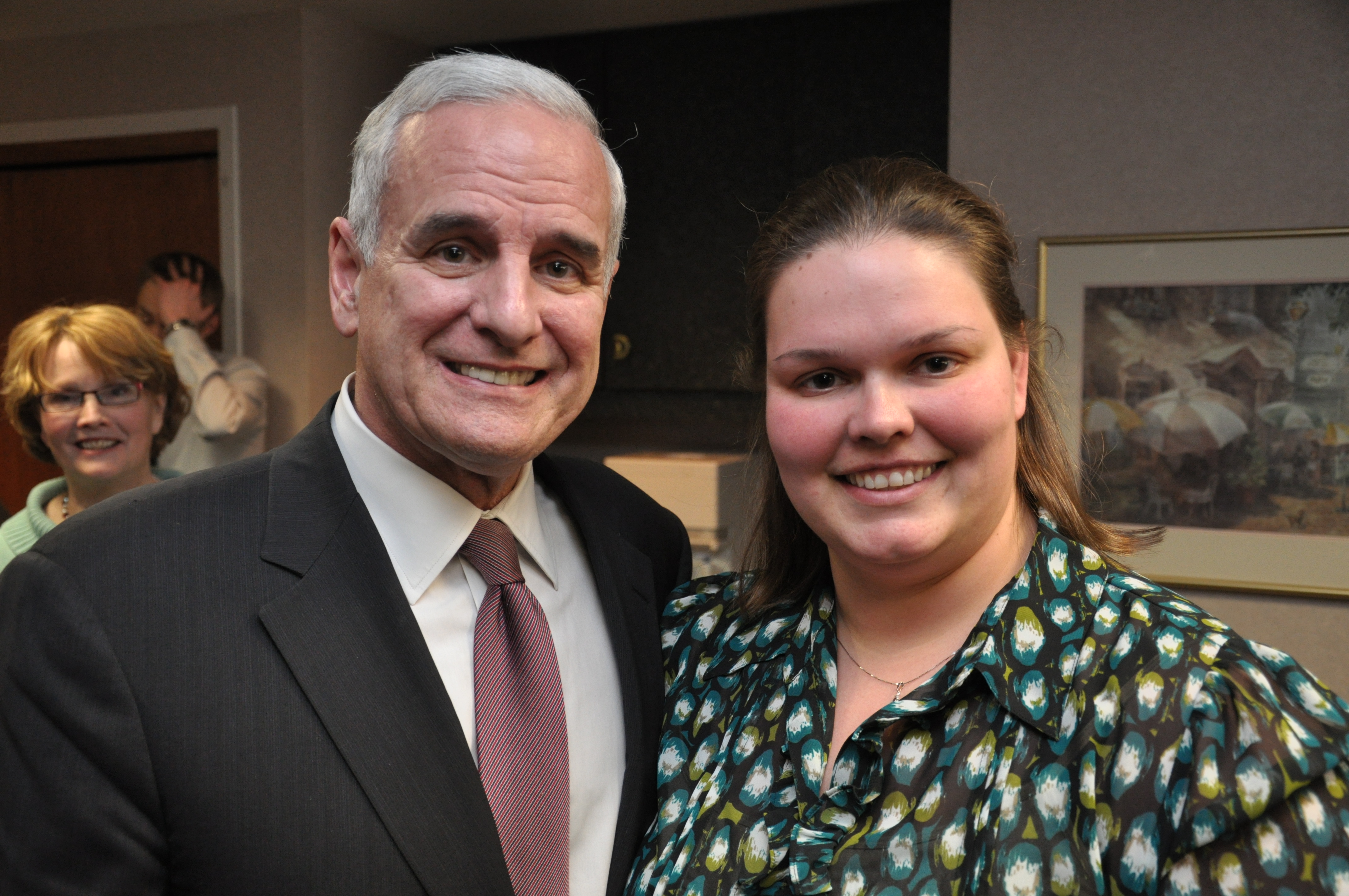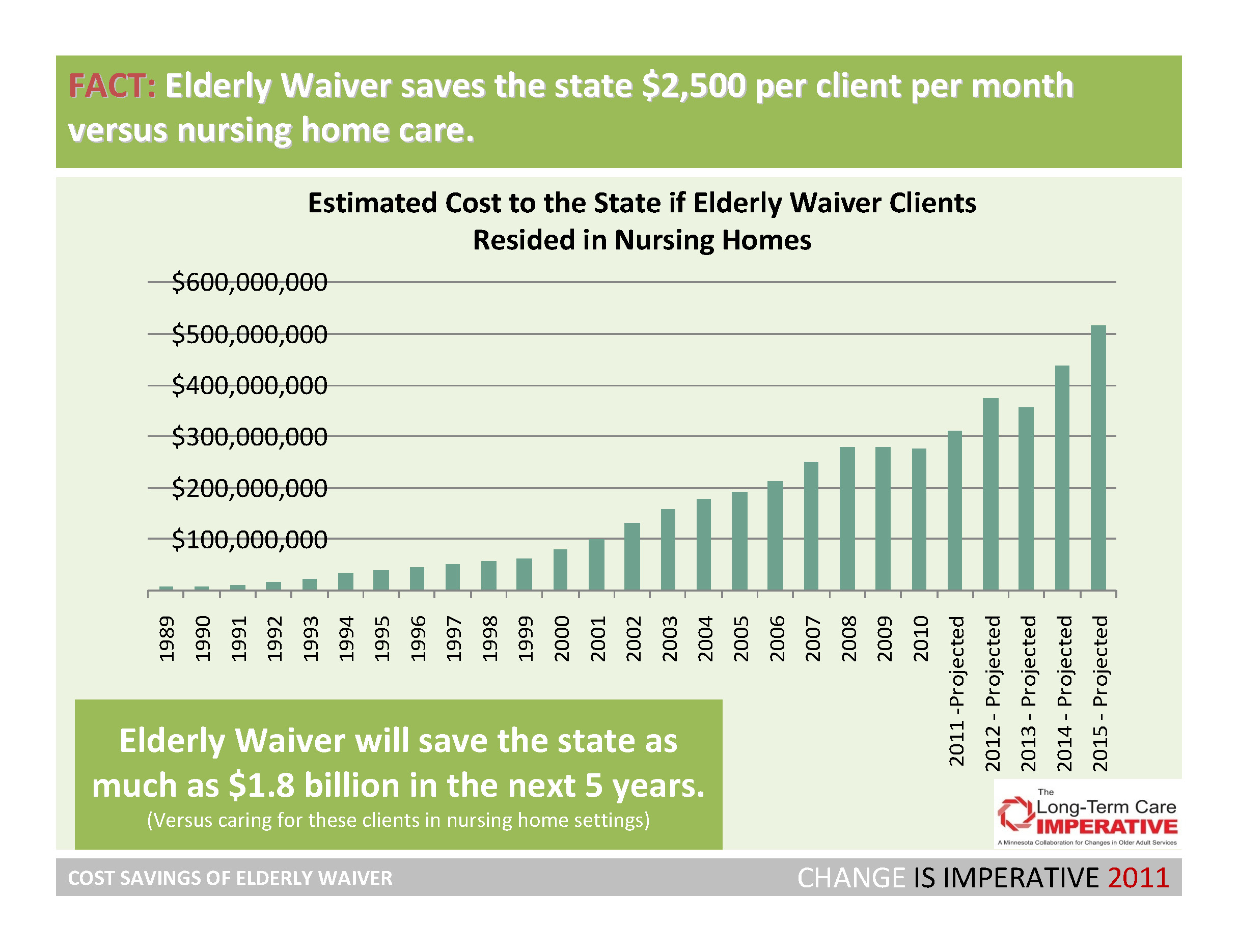
On Tuesday, Governor Mark Dayton held a roundtable discussion regarding the impact of budget proposals on older adult services and the elderly in St. Paul.
In a roundtable discussion, Dayton sat with providers of older adult services, a senior who is currently receiving services, a paid caregiver and a family caregiver and heard about the struggle to provide quality care, a history of state cuts to older adult services, overstretched caregivers and concerns about access to services for the elderly in the wake of a growing senior population.
Chuck Heidbrink, President, Cerentiy Senior Care, reminded the Governor that serving seniors with home and community based services through programs such as Elderly Waiver is extremely cost effective. “You can serve three seniors in the community for the cost of serving one senior in a nursing home.” Sue McLilly, a resident at Heritage Commons in Minneapolis asked the Governor to reconsider cuts to the Elderly Waiver program. Her message was simple: “I’m independent. Elderly Waiver and Assisted Living help keep me independent.”
Governor Dayton’s budget calls for a $5.8 million reduction to the Elderly Waiver program. The House HHS budget proposal would reduce funding for the program by $25 million, focused primarily at the Customized Living rates. The Senate proposal would create enrollment caps in the Elderly Waiver Program, based on June 30, 2011 enrollment levels.
 Sarah Work, Director of Administration, Welcome Home Management and Mark Anderson, Regional Director of Housing, Walker Methodist raised concerns about accessing home and community based services. “You will drive providers out of the Elderly Waiver program if you continue the trend of more cuts,” said Anderson. “That means seniors may not have access to options outside of the nursing home.” Work, who primarily operates programs in rural Minnesota, pointed out that their locations can have anywhere from 15 to 50 percent of their clients on the Elderly Waiver program. “If this program is cut again, you may force some people into a less cost effective option for residents and families, such as a nursing home,” said Work.
Sarah Work, Director of Administration, Welcome Home Management and Mark Anderson, Regional Director of Housing, Walker Methodist raised concerns about accessing home and community based services. “You will drive providers out of the Elderly Waiver program if you continue the trend of more cuts,” said Anderson. “That means seniors may not have access to options outside of the nursing home.” Work, who primarily operates programs in rural Minnesota, pointed out that their locations can have anywhere from 15 to 50 percent of their clients on the Elderly Waiver program. “If this program is cut again, you may force some people into a less cost effective option for residents and families, such as a nursing home,” said Work.
The Long-Term Care Imperative also released key data about jobs and economic development related to older adult services to the media. Please click on the following link to see the information: http://morningtake.posterous.com/charts-minnesota-long-term-care-background-da.
Governor Dayton said the session helped put faces to the tough decisions lawmakers will have to make this year. He pledged to keep their stories in his heart and mind in the final weeks of the legislative session.
